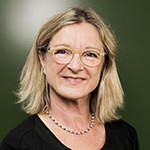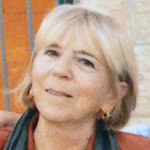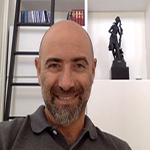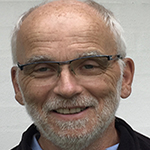Why War? Finding Peace
Panellists: Viviane Chetrit-Vatine, Ricardo Readi, Sverre Varvin
Moderator: Carine Minne
Why War? Was the question that, in 1933, united Sigmund Freud and Albert Einstein. Currently, the Russian invasion in Ukraine updates the need to rethink the psychic impact of war, its consequences and the place of psychoanalysis as a comprehensive and helpful tool. Making peace is an explicit wish that unites us in favour of the direct victims, visualising the long-term effects and expressing solidarity with all the suffering people.
 Moderator: Carine Minne (UK)
Moderator: Carine Minne (UK)
Is a Consultant Psychiatrist within the UK’s National Health Service, Psychoanalyst of the British Society, and chair of the IPA Violence Committee. She is President of the International Association for Forensic Psychotherapy and co-editor of the recently launched International Journal of Forensic Psychotherapy. For 3 decades, she has been passionate about providing psychoanalytic treatments to mentally disordered offenders as well as about the benefits of applying psychoanalytic concepts to mental health and criminal justice organisations. Everyone benefits, patients, prisoners, and society in general – but is society civilised enough yet for these approaches when understanding, hence prevention, is confused with condoning?
 Dr. Viviane Chetrit-Vatine Ph.D. (Israel)
Dr. Viviane Chetrit-Vatine Ph.D. (Israel)
Former Scientific Committee Chair of the Israel Psychoanalytic Society ( 2004 - 2006) Former President of the Israel Psychoanalytic Society ( 2008- 2011) Eitingon Psychoanalytic Institute, Training Committee, Elected Chair ( to begin in July 2022) Author of: "The Ethical Seduction of the Analytic Situation; the Feminine-maternal Origins of Responsibility towards the Other" ( Karnac, IPA pub 2014, Routledge, 2018) which appeared in French ( Puf 2012 ) and Hebrew ( Magnes, Jerusalem Hebrew University Pub.2019).
Title: Aspiration for peace, an ethical exigency. Download paper
This presentation will highlight the author's understanding of ethics, following the French and Jewish philosopher Emannuel Levinas. The notion of "emotionally charged asymmetric responsibility towards the other" will also be an ethical key to characterise the psychoanalyst's ethics. Specifically on the exchange between Freud and Einstein while, despite his understandable pessimism, he stressed that even though human beings aspire to peace, he provided some reasons for it. Others will be analysed, including the countries leaders' idealisation and sacralisation. The contributions of Jean Laplanche will also be considered, and it will be concluded with the proposition that it is in the ethical part of each human being, in effect, their feminine-maternal part, which remains at the very origin of their ethical capacity. This same infinite aspiration and aspiration for peace.
 Ricardo Readi (Chile)
Ricardo Readi (Chile)
Psychologist-Psychoanalyst. Member Chilean Psychoanalytic Association (APCh)
Masters in Psychoanalytic Studies- Tavistock Clinic. Co-Chair (Latin America) of the Committee for Psychoanalytic Assistance in World Crises and Emergencies (PACE).
Title: War, invasions and current global narcissistic contagion. Distinctive contributions from our psychoanalytic mentality and activity.
This presentation will reflect on the attack on Ukraine in the context of repetition in humanity. In addition, a reflection will be offered from the work of the Committee for Psychoanalytic Assistance in World Crises and Emergencies (PACE) and the different initiatives for psychoanalytic intervention in this crisis.
 Sverre Varvin (Norway)
Sverre Varvin (Norway)
Is a MD. Dr. Phil is training in the Norwegian Psychoanalytic Society and professor emeritus at Oslo Metropolitan University. He has worked clinically and done research on traumatisation and treatment of traumatised patients, especially in the refugee field. He has done process and outcome research on psychoanalytic therapy, research on traumatic dreams, and on psychoanalytic training. He has twice been president of the Norwegian psychoanalytic Society and he has had several positions in IPA. He is presently chair of IPA China Committee. He has published articles and books on traumatisation, refugees, terrorism and on research on treatment process and outcome.
Title: The situation of refugees today: Our Relations to Refugees: Between Compassion and Dehumanization. Download paper
The war on Ukraine has caused the largest number of refugees and internally displaced (IDP) people since WW2. The number of refugees/IDPs in the world is almost 85 million people. Traumatisation on a large scale and extreme dehumanising conditions for refugees both in their country of origin and during flight follows.
Resilience is the rule. Hardships during war and flight may, however, give scars affecting generations to come. Vulnerable refugees are often ignored. This presentation will discuss how to meet the psychosocial and mental needs of refugees: which role can psychoanalytic understanding and psychoanalysts have in organising help and treatment?